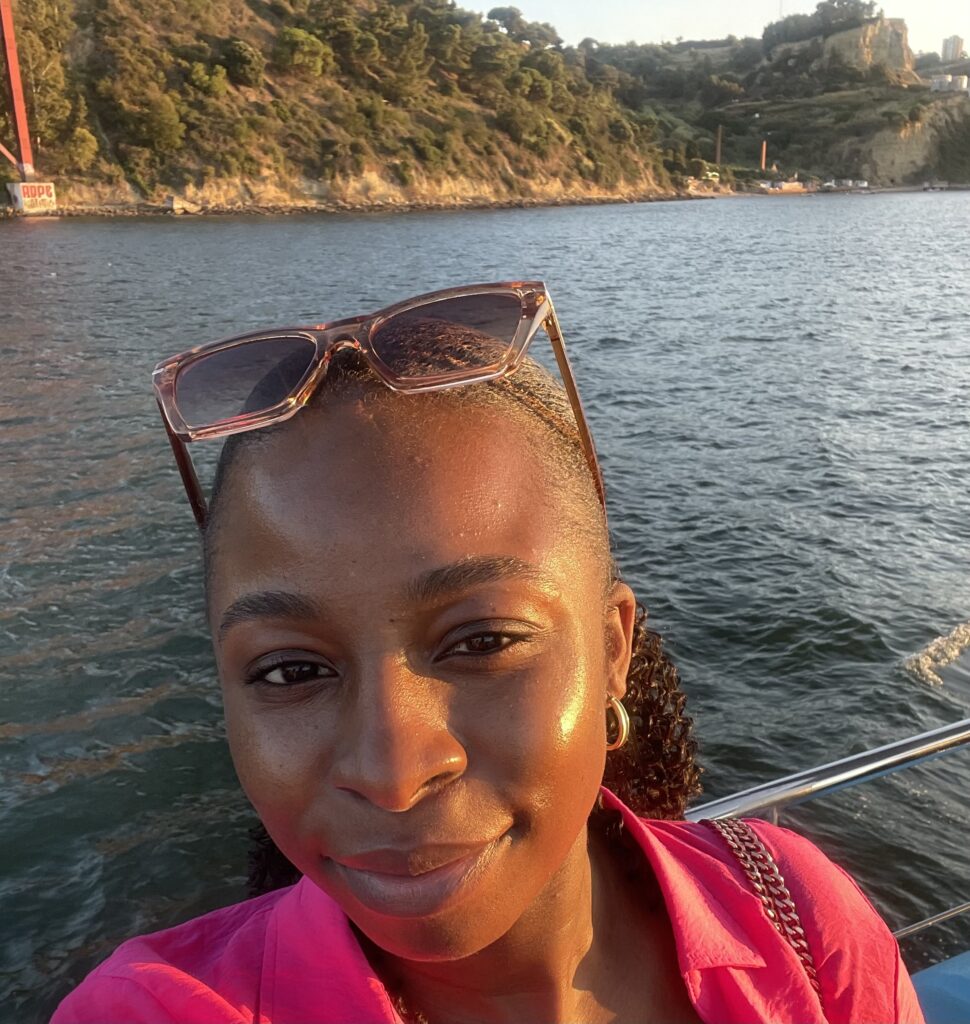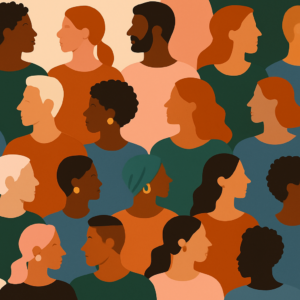Growing Up with Questions
I’ve always been the creative type. Growing up, I loved art, drama, dancing, writing little stories and poems — anything that let me express myself. I was always drawn to vibrant colours, building things with my hands, and coming up with ideas that sparked imagination. Creativity wasn’t just something I enjoyed; it was how I connected with the world around me. But from early on, I also noticed something else—I needed more time to process things. While others caught on quickly, I often found myself putting in extra hours just to keep up.
In my British African household, academic success meant everything. If you struggled, it wasn’t seen as a learning difference—it was seen as a lack of effort.
Growing up, I heard that kids in Nigeria couldn’t even move on to the next school year without passing their exams. So, the pressure was real. If you weren’t doing well, the assumption was that you weren’t serious, or you just weren’t trying hard enough.
The idea of having something like dyslexia? It just wasn’t something people talked about.
For a long time, I didn’t even consider it. And if it came up at all, it was often with stigma or jokes. Something that made you “less than”.
A Breakthrough: Realising My Brain Works in Its Own Powerful Way
It wasn’t until my final year at university that I found out that I had dyslexia. I was juggling dissertation deadlines, endless readings, and projects I couldn’t keep up with. I remember staring at a stack of academic papers and feeling like none of it made sense.
On top of that, one of my lecturers had a reputation for being strict and sarcastic. If you didn’t understand something, you’d be mocked. It was soul-crushing. No matter how hard I worked, I felt like I was falling behind—and I was embarrassed to admit it.
I kept asking myself, “Why is this so hard for me? Why does everyone else seem to get it?”
In the midst of the challenge, I started to shift my thinking. Maybe I wasn’t lacking — maybe I was simply wired differently, created for a journey that didn’t need to look like everyone else’s.
A Conversation That Shifted My Perspective
Eventually, I went to a counselling session and opened up about how I was feeling—stressed, overwhelmed, and left behind. The counsellor gently encouraged me to speak to the university’s Study Skills Centre. That decision changed things.
After an assessment, I was diagnosed with dyslexia.
At first, I kept it to myself. In my family and culture, neurodivergence wasn’t something people really understood. I was scared I’d be judged, labelled, or seen as less capable. But getting that diagnosis felt like a release. It gave me language for what I’d been experiencing all my life. I wasn’t lazy or slow—I just processed the world differently.
The Stats Speak for Themselves
It’s easy to feel alone when you’re struggling. But the numbers tell a different story:
📍 1 in 10 people in the UK have dyslexia — that’s around 6.7 million people
📍 Over 1 million schoolchildren are dyslexic — many undiagnosed
📍 More than 3.3 million adults in the workplace are living with dyslexia — many still unaware
According to the British Dyslexia Association, dyslexia is more common than we think, yet it often goes unrecognised—especially in Black and under-represented communities where stigma and lack of access play a big role.
That’s why awareness and advocacy matter. We need to break the silence and ensure earlier support for those who need it most.
How I’ve Learned to Learn
Understanding how my brain works has helped me stop working against myself and start working with myself. These are just a few of the strategies that have made a big difference:
- 🧑🏫 Getting help from others, including a study skills tutor and my supportive network
- 🛏️ Making sure to practice rest and avoid working from a place of exhaustion
- 📅 Using calendars, planners, and alarms to stay on track
- 🎯 Setting SMART, achievable goals to stay focused and motivated
- 🧠 Pomodoro Technique — 25 mins focused work, 5 mins rest
- 📱 Assistive tech like Grammarly, AI tools, and text-to-speech tools
- 🎨 Visual learning — colour coding, diagrams, and mind maps
- 🗣️ Explaining things out loud — talking it through helps it stick
- 🎧 Using audio and video instead of only written texts
- 📚 Breaking tasks down into chunks to reduce overwhelm
- 🙋🏾♀️ Asking for extra time when needed — without guilt
- 🌍 Creating a sense of community to feel supported
- 🤫 Studying in quiet environments or using headphones to block distractions
These tools have helped me thrive through postgrad studies, certifications, personal growth, and even my career.
To Anyone Struggling Silently
If you’ve ever found yourself doubting your intelligence or feeling like you’re constantly behind—please know that you’re not alone. There’s no shame in needing support.
Wherever you are—whether you’re in school, university, or in the workplace—please speak up. If you’re a student, talk to a trusted teacher, school counsellor, or support worker. At university, reach out to your tutor, your study support centre, or a wellbeing adviser. If you’re working, speak to your manager, HR, or even an occupational health professional. And if you feel overwhelmed emotionally or mentally, don’t hesitate to speak to a healthcare professional. You don’t have to figure it all out on your own.
Having dyslexia doesn’t mean you’re any less smart or capable. Your brain is just wired differently—and that difference is a strength, not a flaw.
Final Words: You’re Not Broken
This journey has taught me so much about myself and how I learn—but even more than that, it’s reminded me of something deeper: I am fearfully and wonderfully made.
My worth isn’t defined by how fast I learn or how well I fit into systems that weren’t designed for minds like mine. God doesn’t make mistakes—and that includes me. That truth has grounded me in the moments I felt most unsure of myself.
And through all of it, my journey has led me to a deeper purpose: I want to support others who are navigating similar struggles—especially those who’ve grown up in environments where learning differences weren’t recognised or understood.
If you’re feeling behind, overwhelmed, or like something’s “wrong” with you—please know you’re not alone. You are not broken. You are wonderfully made, just as you are.





